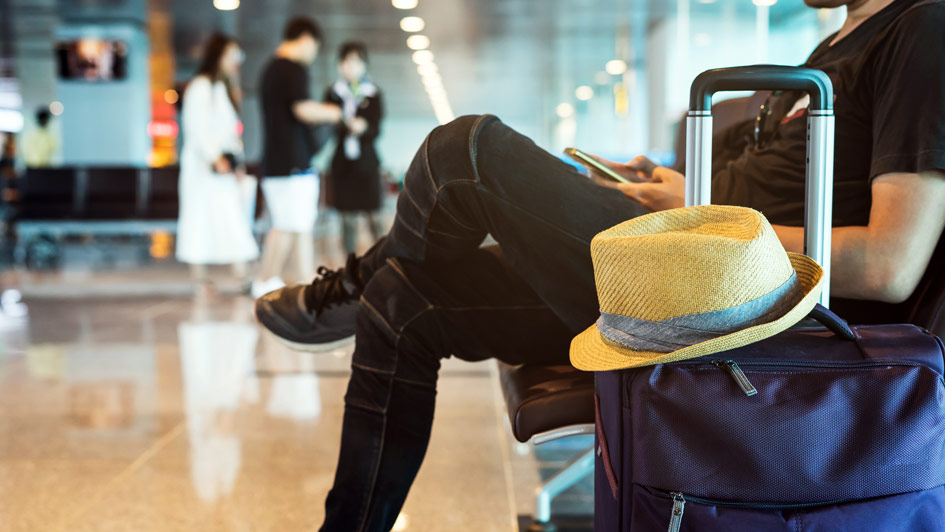
Between a much-needed vacation or an extended trip for work, traveling means making plans for your home comfort system. You don't need it if you’re away, so you can adjust the temperature as needed to limit your energy use. Simultaneously, you shouldn't just turn it off for the entire time you're out of the house.
In general, it’s better to leave your HVAC system on and just make adjustments depending on the time of year. That way you can lower energy costs without stressing about returning to an uncomfortable home. We’ll explain why you should leave your HVAC system on as well as the most energy-efficient thermostat settings for different times of year.
Here’s Why You Don't Leave Your Thermostat Alone
While you might be inclined to shut your HVAC system down before a trip, this can end up leading to costly problems by the time you return. This is particularly true when the weather will be severely hot or cold while you’re away from home.
For example, shutting the HVAC system off in the summer could produce very high humidity. Not only will your home feel gross when you come back, but it may have also stimulated mold/mildew growth or pest infestations.
And in the winter, not using the furnace can lead to pipes freezing up or even bursting. It’s exhausting to come home from a long trip only to find extensive water damage close to a broken pipe.
Ideal Thermostat Settings While at Work
You can adjust the temperature even if you’re coming and going to work. Since you’re away for 8 hours or more, it doesn’t make sense to keep an empty home the same temperature as when you're home. As a general rule, it’s recommended to turn up the thermostat by 5 degrees or so. Meaning that if you prefer a comfortable 72 degrees, consider raising it to 76-77 while you’re gone.
But you could save even more if you try further adjustments to the temperature. According to the Department of Energy, you may save about 10% on your HVAC spending by raising the temperature by about 7-10 degrees.
Best Thermostat Settings While on Vacation in Summer
If you’re leaving for a longer trip in the hottest part of summer, you can make more significant adjustments. This ensures you don’t waste energy while still protecting your home from the hassles that come with leaving it un-air conditioned. Something like 5 degrees is suitable for shorter trips while closer to 10 degrees is ideal if you’ll be gone for 2 weeks or longer. If you like keeping the house at 72 in the summer, 78-82 can offer beneficial results.
Recommended Thermostat Settings While On a Trip in Winter
To figure out the ideal thermostat setting for a winter vacation, just lower the temperature by the same amount you would increase it in summer. 68 is a common winter thermostat setting, so turning it down to 63-58 will protect your plumbing while restricting how often your furnace operates.
A Smart Thermostat Can Help: Advantages of Smart Thermostat Installation
An ideal strategy to optimize your home’s HVAC system while away from home is by investing in a smart thermostat. This innovative type of programmable thermostat uses intelligent software to understand your preferred comfort habits. It learns these preferences and makes automatic changes to the schedule for higher energy efficiency. And with Wi-Fi compatibility, you can remotely access your heating and cooling using a smart device like a phone or tablet.
Smart thermostats are packed with features to help you save energy and lower costs. For example, some models can observe electricity prices to boost heating or cooling when prices are more affordable. They can also work with high-efficiency, variable-speed equipment to refine how long your HVAC system should run. It’s the ideal tool to streamline how you control your comfort system. If you’re planning on investing in a smart thermostat, there are different ways you can reduce your costs, in essence getting a smart thermostat for free. The next time you leave for vacation, you can enjoy true peace of mind that your HVAC system won’t stir up any trouble while you’re away from home.
